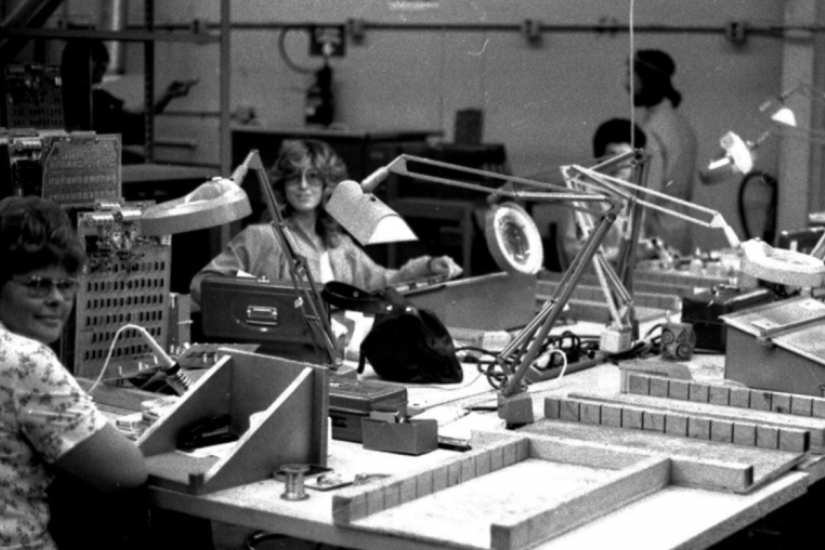In the books chronicling video game history, Atari is painted like something of a frat house, a post-Summer of Love den of pot and sex. These stories weren’t secret whispers—they were tales told proudly by Bushnell and other Atari higher-ups to the historians looking for the inside tales of the game business. Strung together, they conjure a vision of a Mad Men-esque work environment, riddled with toxic power dynamics between men and women.
The truth, as it often is, is harder to nail down. Those who have written history books on Atari point out that many of the stories traded around Twitter in the wake of #NotNolan were distorted. While Bushnell did personally relate the story of “Darlene,” the sexy secretary for whom Home Pong was allegedly named, no one I spoke to was able to pin down a specific source for it or name anybody personally involved. And while the boob-grabbing game Gotcha certainly existed, Twitter lore had Bushnell himself giving the design orders, which wasn’t true, according to Atari historian Martin Goldberg, who has interviewed hundreds of early Atari employees. Tall tales of a bleeding-edge money-maker staffed with hot secretaries contribute to Atari’s mythos, one that Bushnell has actively cultivated in interviews with journalists and historians.
Yes, Atari walked a thin tightrope between sexy and sexist, depending on who you ask about it. The 12 women I interviewed described Atari’s culture as a product of the free-love ‘70s, but also, as an outgrowth of feminism’s second wave, which helped empower women to seek equal workplace opportunities. “It was a different time,” nearly all of them said at some point during our conversation. It’s entirely possible that the women who chose to stay in touch, and publicly affiliated with Atari’s brand, are bonded over their positive experiences. It’s entirely possible unsavory and potentially damaging behavior occurred between men and women at Atari—but speaking up about 40-year-old incidents remains tricky for a variety of reasons.
